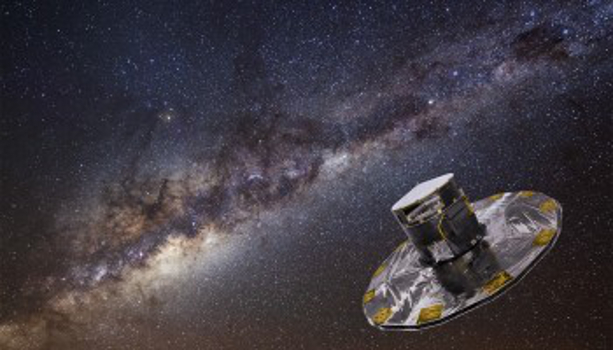The UCD spin-out company Parameter Space Ltd has secured a contract from the European Space Agency (ESA) worth €800,000 over three years to develop software to process the data from Gaia satellite.
The contract will enable Parameter Space to create four new jobs as it tackles the vast volumes of data being received from Gaia.
The Gaia project is a €700 million mission to map and study more than a billion stars, including looking for planets, in our galaxy. Since July of 2014, Gaia has completed almost 100 billion measurements using a 1 billion pixel camera that will eventually amass more than a petabyte of information. Parameter will produce software and tools to process this information, turning it into a three dimensional map of the galaxy.
The company was established in 2014 by astrophysicists Prof Lorraine Hanlon and Dr Sheila McBreen, being spun-out from the UCD School of Physics. Together, the two lead the UCD Space Science and Advanced Materials group and have more than 30 years of experience working on space missions, including ESA’s Integral mission and NASA’s Fermi Gamma-ray Space Telescope.
“We are delighted to have secured this key contract from ESA,” said Prof Hanlon, “and our aim is to develop software tools that will provide additional capability for scientists and citizens to make use of this unique data set.”
“The data analytics skills we have developed over many years working on fundamental physics in the UCD Space Science group,” said Dr McBreen, “have enabled us to make a successful bid for this ESA contract.”
“Having personally worked on the Gaia Science Ground Segment for nearly two decades,” said Dr William O’Mullane, head of Operations Development Division, ESA, “it is great to start thinking about delivering data to the world. The European Space Astronomy Centre already serves up the ESA space science mission data and will also serve up Gaia data. This contract is part of our continuing attempt to improve our delivery of science, it is a pleasure to find an innovative and capable team to collaborate on this in Dublin.”
TechCentral Reporters








Subscribers 0
Fans 0
Followers 0
Followers